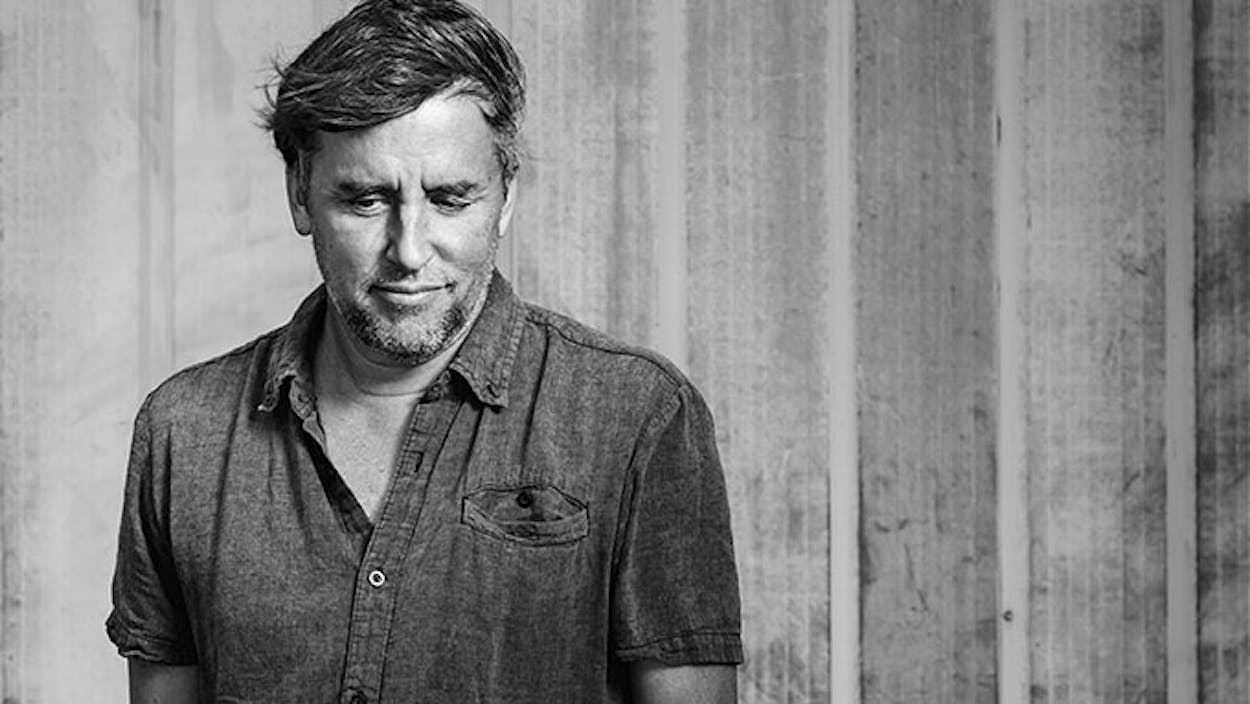It’s been an eventful year so far for Richard Linklater. In January the Austin filmmaker received an Oscar nomination for co-writing the screenplay for his film Before Midnight. Then, in May, it was reported that convicted killer Bernie Tiede—whose bizarre story was recounted in Linklater’s dark 2011 comedy Bernie (which was inspired by a 1998 Texas Monthly story)—would stay in his garage apartment as part of a parole deal. And this month Linklater’s latest film, Boyhood—which follows the coming of age of a young Austinite, from age six to eighteen—opens nationwide. It’s already been tagged by critics as some of his finest work.
Christopher Kelly: You filmed Boyhood over the course of twelve years, gathering the same group of actors together for a few days each year. Was it difficult to convince people to be a part of something that would require such a longtime commitment?
Richard Linklater: Ethan Hawke and Patricia Arquette [who play the boy’s parents] were like, “What a great, weird idea.” Artists get it, and there was an excitement with them. But when I would talk to producers and money people, you could tell their minds went through every bad possible scenario: What if somebody died, what if somebody moved away?
CK: In the film the main character, Mason Jr., who is played by Ellar Coltrane, is being raised by a divorced mother, his father is in the insurance business, and he eventually develops artistic aspirations—all of which could also be said of you. How deep does the autobiography run here?

RL: I would say there’s a structure there that’s autobiographical, but the collaboration is wider. It’s the best of all worlds, because it’s also extremely personal to Ellar, to Ethan, and to Patricia [all of whom had input in the plot and dialogue]. I would venture to say that almost every character in the movie has a basis in someone’s life, if not always mine. A part of me is in Mason Jr., for sure. But I can say that about everything I’ve ever done. You leave parts of yourself in everything you do.
CK: Matthew McConaughey, whom you first worked with in Dazed and Confused, won the Oscar this year for Dallas Buyers Club. And there are some other performers you’ve worked with early in their careers—like Jack Black in School of Rock and Zac Efron in Me and Orson Welles—long before other filmmakers and critics took them seriously as actors. Do you have a knack for seeing something in people before anybody else can?
RL: I think that’s the director’s job, like a coach’s job: to see greatness in others. It’s a performer’s medium in that way—you’re creating a forum for them to perform. You go through life making decisions, and at the end of the day, you’ve just got to trust your instincts. I never feel like I’m gambling. Every now and then maybe I’m a little wrong, but I can meet with an actor for a short amount of time and know what they can do.
CK: Have the economic changes in the film world affected you? Is it getting harder for you to make your movies?
RL: I remember finishing Me and Orson Welles, in 2008, and looking up and the indie landscape had just disappeared. There weren’t that many distributors anymore. I hate to think that I’m in a business, or to see it at that level, but every now and then, the business side of the industry makes itself very clear.
CK: And the Hollywood studios aren’t really making movies like School of Rock or Dazed and Confused anymore, right?
RL: And if they’re not making School of Rock, then they’re certainly not making Bernie. Bernie we did super low-budget. As I was doing it, I was thinking, had we done this fifteen years ago, it would have been a small studio comedy. Now there’s no such thing as a small studio comedy.
CK: But you’re still managing to do the work you want to do?
RL: I put my own money into the last few films. You kind of have to bet on yourself in this world. I’m not averse to that. And I have plenty of things I still want to do. For every film I do, two more remain unmade. But they have the potential to get made. Bernie sat around for a long time. That process actually culls out what you really want to make. If you’re still thinking about a film ten years after you first had the idea to do it, you should probably make it.
CK: I have to ask you about your decision to house Bernie Tiede as part of his parole deal.
RL: I think the reaction has been overstated. I have a garage apartment, big deal. I’m letting Bernie live there. That’s not some sacrifice on my part. The question about his sentencing was always about proportion. I thought he deserved to be in jail, just not for life. [Tiede was convicted of the 1996 murder of 81-year-old Marjorie Nugent and sentenced to life in prison, but Tiede’s supporters have argued that he was in an abusive relationship with Nugent and should have instead been tried for manslaughter.]
CK: Any reservations, though, that if it weren’t for his Hollywood connections, Tiede would still be in jail?
RL: It’s one of those giveth-and-taketh situations. The media sensationalism surrounding the story probably cost him initially. He was victimized by incorrect information. So now he’s the beneficiary of the fact that we made a movie about him. Bernie is a very intelligent guy, and now he’s got a job, a place to live, and people to care about him. He’s set up to be successful, as a tax-paying citizen. I wish as a culture we could provide this kind of rehabilitation more consistently.
This interview has been edited for clarity and length.
- More About:
- Film & TV
- Richard Linklater
- Bernie Tiede







